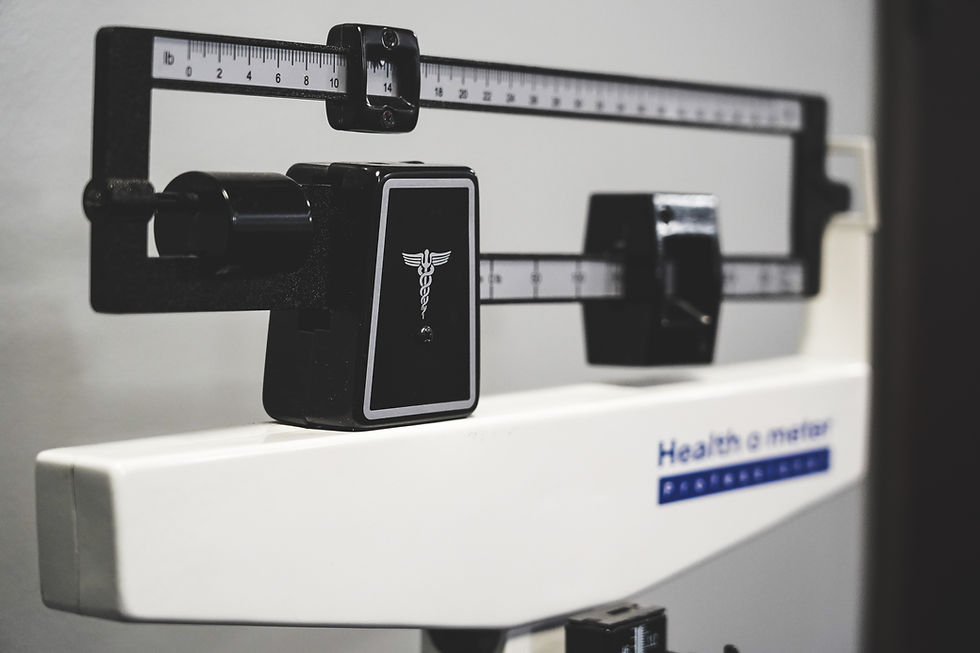The VA just updated ratings for GERD, effective May 19th. Here's everything you need to know
- MRPY Professional Services

- Apr 29, 2024
- 3 min read
We have important news for Veterans with gastroesophageal reflux disease (GERD)! The VA recently updated their rating criteria for this common condition. We went through this long update to figure out exactly what you need to know, which we've compiled below. These recent updates are going to change the ability of many to get VA disability benefits for GERD.
Keep reading for all of the details on how the VA's ratings have changed for GERD:
But first: What is gastroesophageal reflux disease (GERD)?
In case you're unfamiliar, the acronym "GERD" actually stands for gastroesophageal reflux disease. The Mayo Clinic defines this condition as “when stomach acid repeatedly flows back into the tube connecting your mouth and stomach (esophagus). This backwash (acid reflux) can irritate the lining of your esophagus.” It's a highly common condition, often aggravated when stress takes a physical toll on the body.
Due to a series of different contributing factors, Veterans are more likely to develop GERD. It can also lead to other conditions – such as sleep apnea, dental complications, stomach ulcers, and more. If you suspect you might have GERD, review these common symptoms and get in touch with your doctor for a professional opinion.
How the VA changed the rating scale for GERD
GERD used to be rated under Hiatal Hernia (when the upper part of the stomach bulges upward, allowing food and stomach acid to move up the esophagus). Now, GERD will be rated under the code: “esophageal stricture”.
The VA's reasoning for this is because esophageal stricture (that's a fancy term that simply means the narrowing of the esophagus) is the most common sign of long term, untreated GERD. Even though the VA acknowledges other symptoms, Veterans will have to prove esophageal stricture to get any VA disability benefits for GERD. Without this sign of permanent impairment, they will only qualify to earn a 0% rating.
The new rating percentages are as follows:
80%: "Documented history of recurrent or refractory esophageal stricture(s) causing dysphagia with at least one of the symptoms present: (1) aspiration, (2) undernutrition, and/or (3) substantial weight loss as defined by § 4.112(a) and treatment with either surgical correction of esophageal stricture(s) or percutaneous esophago-gastrointestinal tube (PEG tube)"
50%: "Documented history of recurrent or refractory esophageal stricture(s) causing dysphagia which requires at least one of the following (1) dilatation 3 or more times per year, (2) dilatation using steroids at least one time per year, or (3) esophageal stent placement"
30%: "Documented history of recurrent esophageal stricture(s) causing dysphagia which requires dilatation no more than 2 times per year"
10%: "Documented history of esophageal stricture(s) that requires daily medications to control dysphagia otherwise asymptomatic"
0%: "Documented history without daily symptoms or requirement for daily medications"
consider adding the effective date for this change being May 19th. If the veteran files the claim prior to this they will be considered on both rating scales but if a claim is filed after May19th then only the new rating scale
NOTE: The effective date for this change is May 19th, 2024. If a claim is filed prior to this, the Veteran will be considered on both rating scales. But if a claim is filed after May 19th, then only the new rating scale applies.
Basically, GERD just became more difficult to earn VA disability benefits above 0% for
The above updates make it more likely that most Veterans will now earn 10% or lower, unlike before, where it was easier to earn 30%. The small silver lining is that a 10% rating may be considered for symptoms and daily medication, in our opinion, on a case by case basis (ultimately the VA rater is the decision maker). But unfortunately, the absence of esophageal stricture will prevent much else in regards to getting more VA disability benefits.
We understand that GERD symptoms can have a significant impact on a Veteran's life, and will do our best to work with you as these changes become the new regular rating structure. We'll be sharing updates as they come in the near future.
Get medical documents to support your VA disability benefits claim
At MRPY Professional Services, we help Veterans with compelling documentation to support their VA disability benefits claim. Whether you are looking for a Nexus Letter, DBQ, chart review, or other expert medical opinions – our friendly experts are ready to support you. View our services here, and sign up for a chart review when you're ready.





Comments